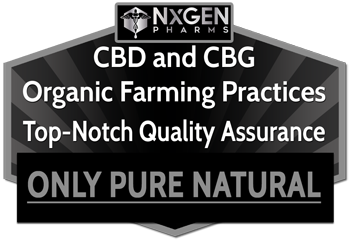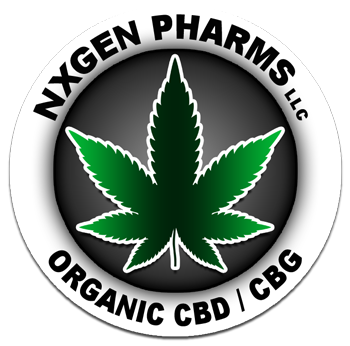Potential Benefits of our Natural Organic Extracts
CBD/CBG are one of many cannabinoids (compounds) in the cannabis plant. Researchers have been looking at the possible therapeutic uses of CBD/CBG.
Until recently, THC was the best-known compound in cannabis. It is the most active constituent, and it has a psychological effect. It creates a mind-altering “high” when a person smokes it or uses it in cooking. This is because THC breaks down when a person applies heat and introduces it into the body.
CBD/CBG in contrast, are not psychoactive. It does not change a person’s state of mind when they use it. However, it may produce significant changes in the body, and it is showing some significant medical benefits.
Benefits
CBD/CBG may benefit a persons health in various ways. According to a 2018 study, reasons for taking CBD/CBG oil include:
- chronic pain
- arthritis or joint pain
- anxiety and depression
- sleep disorder
- migraine
- cluster and other headaches
- post-traumatic stress disorder (PTSD)
- nausea
- cancer
- allergies or asthma
- epilepsy and other seizure disorders
- quit smoking
- multiple sclerosis (MS)
- lung conditions
- Parkinsons disease
- Alzheimers disease
- Inflammatory bowel disease
- Glaucoma
- Bladder dysfunctions
- Huntingtons disease
- Bacterial infections
- Appetite loss
There is some evidence to support some of these uses.
How to use CBD/CBG
CBD/CBG is extracted from Hemp plants as either an oil or powder. These can be mixed into creams or gels. They can be put into capsules and taken orally, or rubbed on your skin. The multiple sclerosis drug nabiximols is sprayed as a liquid into your mouth. How CBD/CBG should be used depends largely on what it’s being used for. Talk to your doctor before using CBD/CBG oil. It hasn’t been approved by the U.S. Food and Drug Administration (FDA) for any medical uses, and it can have side effects.
Is CBD/CBG Legal? Hemp-derived CBD/CBG products (with less than 0.3 percent THC) are legal on the federal level, but are still illegal under some state laws. Marijuana-derived CBD products are illegal on the federal level, but are legal under some state laws. Check your state’s laws and those of anywhere you travel. Keep in mind that nonprescription CBD products are not FDA-approved, and may be inaccurately labeled.
Where does CBD/CBG come from?
CBD/CBG comes from the cannabis plant. People refer to cannabis plants as either hemp or marijuana, depending on how much THC they contain.
The FDA note that hemp plants are legal under the Farm Bill, as long as they contain less than 0.3% THC.
Over the years, marijuana farmers have selectively bred their plants to contain high levels of THC and other compounds that suited their interests.
However, hemp farmers rarely modify the plant. CBD/CBG oil comes from these legal hemp plants.
How CBD/ CBG works
All cannabinoids produce effects in the body by interacting with cannabinoid receptors, which form part of the endocannabinoid system.
The body produces two receptors:
- CB1 receptors are present throughout the body, particularly in the brain. They co-ordinate movement, pain, emotion, mood, thinking, appetite, memories, and other functions.
- CB2 receptors are more common in the immune system. They affect inflammation and pain.
THC attaches to CB1 receptors but CBD/CBG stimulates the receptors so that the body produces its own cannabinoids, known as endocannabinoids.
How does CBD/CBG help relieve pain?
Quitting smoking and drug withdrawal
A 2013 pilot study found that smokers who used inhalers containing CBD/CBG smoked fewer cigarettes than usual and stopped craving nicotine. This suggests that CBD/CBG may help people quit smoking.
A 2018 study found that CBD/CBG helped reduce cravings during withdrawal from tobacco because of its relaxing effect.
Authors of a 2015 review found evidence that specific cannabinoids, such as CBD/CBG, may help people with opioid addiction disorders.
The researchers noted that CBD/CBG reduced some symptoms associated with substance use disorders. These included anxiety, mood-related symptoms, pain, and insomnia.
Legality
The legal status of CBD/CBG in the U.S. is complex. Hemp and hemp-derived products are legal under the Farm Bill, as long as their THC content is less than 0.3%.
However, there is still some confusion over the specifics.
People should check the laws in their state and any travel destination.
It is worth remembering that the FDA have not yet approved any nonprescription products, which means people cannot be sure about what their product contains.
Risks and side effects
As with most therapies, CBD/CBG use may entail some risks. It may interact with supplements and other drugs. Most CBD/CBG products do not have FDA approval, which also means they have not undergone thorough tests.
It is not possible to know if a product:
- is safe and effective for everyone to use
- has the properties or contents stated on the packaging
Anyone who is using CBD/CBG – whether as a prescription drug or in other forms — should first speak to a doctor.
Possible adverse effects include:
- liver damage
- interactions with other drugs and alcohol
- changes in alertness, which can make driving dangerous
- gastrointestinal problems and loss of appetite
- mood changes, including irritability and irritation
- a reduction in fertility for males
Future research may prove CBD effective in treating various conditions. For now, however, the FDA urge people not to depend on CBD as an alternative to conventional medical care.
During pregnancy
Experts believe that using marijuana during pregnancy may affect the fetal development of neurons. Regular use among teens is associated with issues concerning memory, behavior, and intelligence.
The FDA advise people not to use CBD during pregnancy or while breastfeeding.
CBD/CBG There are various ways of using CBD/CBG oil. These are not the same as using or smoking whole cannabis.
If a doctor prescribes CBD/CBG for epilepsy, it is important to follow their instructions.
Ways of using CBD/CBG products include:
- mixing them into food or drink
- taking them with a pipette or dropper
- swallowing capsules
- massaging a paste into the skin
- spraying it under the tongue
Recommended dosages vary between individuals and depend on factors such as:
- body weight
- the concentration of the product
- the reason for using CBD
CBD/CBG Click here to learn more about CBD/CBG dosage.
Summary
There is growing interest in CBD/CBG as a therapy for various conditions, but only one product currently has FDA approval. Unapproved products are legal in some, but not all, states.
As regulation in the U.S. increases, more specific dosages and prescriptions will start to emerge.
For now, people should ask a healthcare professional for advice about which product to use and how much to take.
They should also research to ensure they are following regional and local laws. The FDA provide information about a wide range of issues relating to CBD use.
Contact Us:



